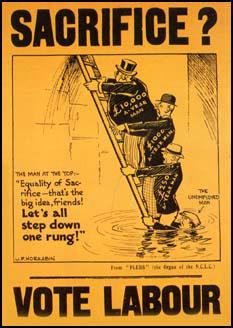A2
Research questions for Roads to socialism –revolutionary
socialism
1. On what major Issues have
socialists been divided? Why is the choice of a particular ‘road to socialism’
of crucial significance? Why were revolutionary tactics attractive to
socialists in the 19th century?
2. How did revolution reflect socialists’
analysis of the state? Why do Marxists refer to the ‘bourgeois state’?
3. What is the Marxist view of
Universal suffrage? What alternative does a ‘class conscious proletariat’ have?
4. Why did the ‘revolutionary
road’ lead to dictatorship & political repression?
5. Why did the appeal of
revolutionary tactics fade? Two points – one from the book/one your own
Research questions for Roads to socialism – Reform – The inevitability of gradualism
1. What
similarity did the Fabian view have with Marx’s view? How do these views
differ? Why were the Fabians optimistic?
2. Why
have some claimed that democratic socialism is based on a contradiction?
3. Have
socialist parties in government been successful in abolishing capitalism?
4. What
unforeseen problems does democratic socialism face?
5. How
have left-wing socialists responded to these questions?
Research questions for Marxism – Philosophy & Economics
1.
What is
Marx’s philosophy of history - a ‘materialist conception of history’?
2.
What do
you think Marx meant by ‘social being determines consciousnesses? What is ‘Base
& superstructure?’
3.
What did
Marx mean by the ‘dialectic’ & why is capitalism doomed?
4.
Explain alienation.
(4 points)
5.
How did
Marx define class? Explain why class is the chief agent of historical change.
Research questions for Marxism - Politics & Orthodox Communism
1.
Describe
the nature of the proletarian revolution. When & where would the revolution
occur? What would be the subjective element?
2.
Why do
they suggest a ‘dictatorship of the proletariat’? What would happen to it?
3.
How did 20th
century Marxism deviate from Marx? Explain the Vanguard party.
4.
In
practice what did dictatorship of the proletariat require?
5.
How did
Stalin differ from Marx?
Research questions for Monday - A future for Marxism?
1. What 2 factors shaped neo
Marxism?
2. What did Lukacs mean by
reification?
3. What did Gramsci mean by
hegemony?
4. Find arguments that suggest Marxism is dead?
5. How would Marxists argue the
contrary?
Prep due on Friday: Distinguish between fundamentalist socialism and
revisionist socialism (15).

 During his talk, Mr Galloway’s maintained that there could never be peace until Palestinians get justice, arguing that the only viable solution was a single secular state where Christians, Jews and Muslims had equality. The pupils did not waste the opportunity to ask many pertinent questions: ‘How could peace be achieved?’, ‘How could the Israeli government be persuaded?’ and ‘Even if the governments agreed what would happen if millions of Israeli citizens opposed any sharing of power. Wouldn’t violence be inevitable?’. In response, Galloway drew on the experience of South Africa and the way relative peace was achieved in a post-apartheid era.
During his talk, Mr Galloway’s maintained that there could never be peace until Palestinians get justice, arguing that the only viable solution was a single secular state where Christians, Jews and Muslims had equality. The pupils did not waste the opportunity to ask many pertinent questions: ‘How could peace be achieved?’, ‘How could the Israeli government be persuaded?’ and ‘Even if the governments agreed what would happen if millions of Israeli citizens opposed any sharing of power. Wouldn’t violence be inevitable?’. In response, Galloway drew on the experience of South Africa and the way relative peace was achieved in a post-apartheid era.

